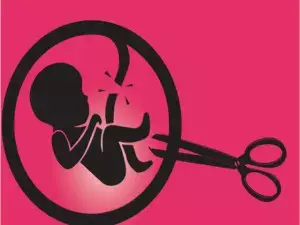- Home
- Medical news & Guidelines
- Anesthesiology
- Cardiology and CTVS
- Critical Care
- Dentistry
- Dermatology
- Diabetes and Endocrinology
- ENT
- Gastroenterology
- Medicine
- Nephrology
- Neurology
- Obstretics-Gynaecology
- Oncology
- Ophthalmology
- Orthopaedics
- Pediatrics-Neonatology
- Psychiatry
- Pulmonology
- Radiology
- Surgery
- Urology
- Laboratory Medicine
- Diet
- Nursing
- Paramedical
- Physiotherapy
- Health news
- Fact Check
- Bone Health Fact Check
- Brain Health Fact Check
- Cancer Related Fact Check
- Child Care Fact Check
- Dental and oral health fact check
- Diabetes and metabolic health fact check
- Diet and Nutrition Fact Check
- Eye and ENT Care Fact Check
- Fitness fact check
- Gut health fact check
- Heart health fact check
- Kidney health fact check
- Medical education fact check
- Men's health fact check
- Respiratory fact check
- Skin and hair care fact check
- Vaccine and Immunization fact check
- Women's health fact check
- AYUSH
- State News
- Andaman and Nicobar Islands
- Andhra Pradesh
- Arunachal Pradesh
- Assam
- Bihar
- Chandigarh
- Chattisgarh
- Dadra and Nagar Haveli
- Daman and Diu
- Delhi
- Goa
- Gujarat
- Haryana
- Himachal Pradesh
- Jammu & Kashmir
- Jharkhand
- Karnataka
- Kerala
- Ladakh
- Lakshadweep
- Madhya Pradesh
- Maharashtra
- Manipur
- Meghalaya
- Mizoram
- Nagaland
- Odisha
- Puducherry
- Punjab
- Rajasthan
- Sikkim
- Tamil Nadu
- Telangana
- Tripura
- Uttar Pradesh
- Uttrakhand
- West Bengal
- Medical Education
- Industry
Antibiotic prophylaxis reduces infection risk after surgery for incomplete abortion: BJOG

One-fifth of all pregnancies end in spontaneous miscarriage or incomplete abortion. In the majority of these cases, surgical procedures, such as curettage or vacuum aspiration are used for removal of any retained tissues. One of the major concerns with these surgical procedures however, is the risk of genital tract infection (GTI). Given the serious consequences associated with such infections, routinely conducted abortion procedures present a significant public health challenge among women undergoing incomplete abortion.
Researchers have investigated the effect of prophylactic antibiotics in preventing GTI associated with surgical procedures used for incomplete abortions. However, findings from these reports have been conflicting. Some reported a decrease in infection associated with the use of antibiotic prophylaxis, while others found no significant reduction in GTI
In this context, Nazmul Islam and team carried out a study aimed to update the evidence on the efficacy of prophylactic antibiotics compared to placebo on GTI in women undergoing surgical procedure for incomplete abortion in low-middle and high income countries.
In February 2020, PubMed, Embase and Cochrane Central for Register of Controlled Trials were searched for relevant published randomized controlled trials. Selection criteria included Randomized controlled trials reporting GTI following surgical procedures for incomplete abortion and comparing antibiotic prophylaxis against placebo. Meta-analysis using inverse variance heterogeneity model included a-priori determined subgroup and sensitivity analyses were conducted. The quality of evidence was assessed using GRADE.
- A total of 16,178 women who participated in 24 eligible randomized controlled trials published between 1975 and 2019 were included.
- Pooled estimates showed the risk of GTI following surgical procedures after incomplete abortion was significantly lower among those who had prophylactic antibiotics (RR=0.72; 95%CI 0.58-0.90; I2=49%).
- There was no significant effect of antibiotics in women in low and middle income countries (3 studies, 3,579 participants, RR= 0.90; 95%CI 0.50-1.62), while it was clinically and statistically significant among women high income countries (21 studies, 12,599 participants, RR=0.67; 95%CI 0.53-0.84), with strong level of evidence as assessed by GRADE.
- Additional subgroup analyses by the type of antibiotics and route of administration showed that pooled estimates remained largely unchanged. When sharp curettage instruments were used, the effect of prophylactic antibiotics (RR 0.17; 95% CI 0.07-0.42) was significantly higher in reducing GTI compared to blunt curettage.
- With respect to adverse events, although the study did not find evidence of an increased risk of nausea and vomiting associated with antibiotic use, it is plausible that antibiotic use could be associated with other gastrointestinal symptoms, such as abdominal pain. However, the benefits of reducing the risk of GTI were likely to outweigh the costs of adverse events such as nausea and vomiting, which are self-limiting.
A relative risk reduction of 33% was associated with prophylactic antibiotic use among women in high income countries, with the quality of evidence assessed to be high. This has important implications for clinical practice as current guidelines provide mixed messages on the use of prophylactic antibiotics.
This study provides evidence that antibiotic prophylaxis is beneficial in reducing GTI among women undergoing surgery for incomplete abortion in high income countries. Further well-designed RCTs are needed from low and middle income countries.
https://doi.org/10.1111/1471-0528.16637
MBBS, MD Obstetrics and Gynecology
Dr Nirali Kapoor has completed her MBBS from GMC Jamnagar and MD Obstetrics and Gynecology from AIIMS Rishikesh. She underwent training in trauma/emergency medicine non academic residency in AIIMS Delhi for an year after her MBBS. Post her MD, she has joined in a Multispeciality hospital in Amritsar. She is actively involved in cases concerning fetal medicine, infertility and minimal invasive procedures as well as research activities involved around the fields of interest.
Dr Kamal Kant Kohli-MBBS, DTCD- a chest specialist with more than 30 years of practice and a flair for writing clinical articles, Dr Kamal Kant Kohli joined Medical Dialogues as a Chief Editor of Medical News. Besides writing articles, as an editor, he proofreads and verifies all the medical content published on Medical Dialogues including those coming from journals, studies,medical conferences,guidelines etc. Email: drkohli@medicaldialogues.in. Contact no. 011-43720751


